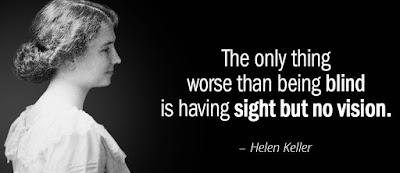REQUIREMENTS: 1) Blindness Experiment, 2) three page reflection
Please email your project to justin@oursanctuary.org
AIM: This project is an experiment which aims to defamiliarize the student to the experience of sight in order to understand better its question-ability. In this experiment, you must blindfold yourself and then ask yourself certain questions about the experience.
Instructions: This project is has two parts.
1. Blindfold yourself for a min. 4 hours. The longer, the better response you’ll get. 6-8 hours is ideal. Locate your self in an environment that is very visually familiar to you, some place like your dorm room or living space that you know very well. If you work with a partner, then you can walk around and do some exploring.
2. Spend the first three hours of the experiment just trying to be receptive to your new condition. Think about the ways your other sense experiences change when you cannot see. Try to get into the strangeness of it.
3. After the time is up, take off your blindfold. Your experience is now data for your paper.
4. Your paper (3 pages min.) should do three things: 1) It should focus on one main question, 2) It should draw from your own personal experience, using whatever interesting things you experienced as data-points for what you say, and 3) It should bring in at least two references to ideas or arguments or questions we discussed in class. Here are some of the ideas related to our blindness discussion:
1. Does vision "objectify" other beings and the world?
2. What does it mean, to perceive reality?
3. What is the difference between your sense of place, location, and spatial layout when you can see as opposed to when you are blind?
4. What things can blind people see/perceive/experience that ‘seeing’ people cannot?
5. In what sense is Plato's Allegory of the Cave "true"?
6. In what sense does physical (ocular) vision contradict or compete with spiritual vision?
7. What is consciousness?
__________________________________________________
Ideas from our discussion of the philosophy of blindness
• Blindness related to trauma - PTSD, numbness, dissociation, zombie-ism.
QUESTIONS: The student should consider the following questions before performing this experiment then choose ONE of these or your own main question to focus on for your report.
2. What does it mean, to perceive reality?
3. What is the difference between your sense of place, location, and spatial layout when you can see as opposed to when you are blind?
4. What things can blind people see/perceive/experience that ‘seeing’ people cannot?
5. In what sense is Plato's Allegory of the Cave "true"?
6. In what sense does physical (ocular) vision contradict or compete with spiritual vision?
7. What is consciousness?
__________________________________________________
Ideas from our discussion of the philosophy of blindness
(a) ocular vision versus mental vision (faculty of mental imagery, or the “mind’s eye)
(b) Sensation (raw information) versus perception (meaningful, unified object), versus consciousness or conscious awareness (the awareness of the object perceived)
(c) Perceptual bias - what a particular mode of perception highlights and what it is blind to
(d) Objectification - The visual bias focus on surfaces, tendency to “objectify” by perceiving an entity as a thing in space/time versus a person or thing with an inside or interior reality.
(e) Kinds of Blindness
• Ocular blindness - eyes don’t function
• Neurological blindnesses - e.g. facial agnosia, unable to recognize faces.
• Conceptual blindness - what is sensed cannot be “perceived” (cannot be grasped, identified)
• Epistemological blindness - not knowing what you don’t know
• Blindness of the Cave - not living in the light of Truth, being unable to see the true meaning of things, but only the constructed, political, ideological meaning
• Spiritual blindness - being blind to your true nature as a Self
• Blindness related to social conditioning - racism, sexism, classism


No comments:
Post a Comment